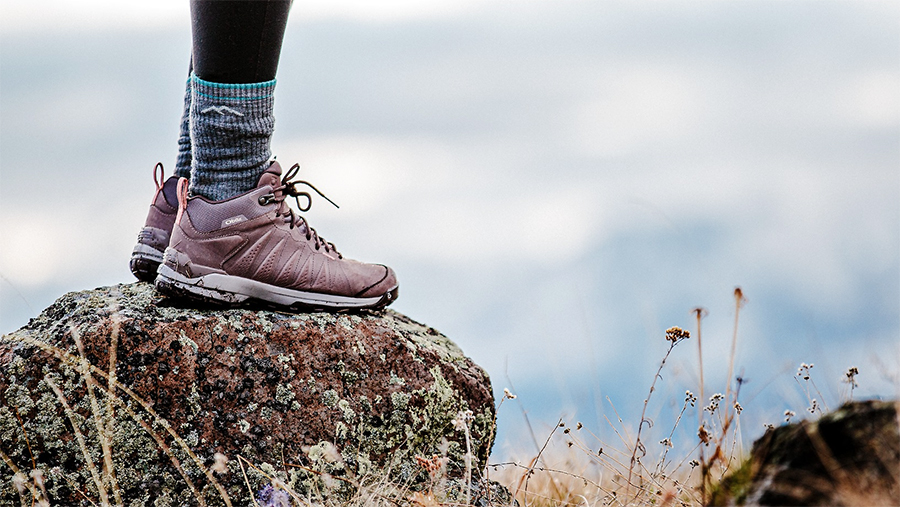Kathmandu Holdings Ltd. reported sales rose 15.1 percent in the fiscal year ended July 31. Strong performances were seen from Rip Curl and Oboz, driven by participation growth in surfing and hiking. The Kathmandu chain was impacted by COVID-related travel restrictions.
Sales reached NZ$922.8 million against NZ$801.5 million a year ago. The New Zealand-based company said the FY21 Group results were underpinned by strong sales from Rip Curl and Oboz and included a full 12 months of Rip Curl (FY20 included 9 months of Rip Curl post-acquisition).
Gross margin was up 40 basis points to 58.7 percent. Underlying EBITDA was up 35.9 percent to NZ$113.3 million, excluding the impact of IFRS 16 and one-off abnormal costs, driven by strong sales performance and focused management of operating expenses.
Underlying NPAT (net profit after taxes) was up 110 percent to NZ$66.3 million (excluding the impact of IFRS 16 and one-off abnormal costs).
Earnings growth further reflected the Group’s focused management of operating expenses, including the benefit of rent abatements and approximately NZ$15 million annualized restructuring and synergy savings implemented during the onset of the pandemic last financial year.
Group CEO & Managing Director Michael Daly said: “We are proud of the results we have been able to produce over the past 12 months in the face of ongoing COVID challenges delivering strong sales and positioning the business for sustained growth.
“Rip Curl achieved sales above pre-COVID levels in the key regions of North America and Europe during the Northern Hemisphere summer season benefiting from increased participation in surfing and reflecting the brand’s technical product focus and strong consumer engagement. Rip Curl’s wholesale order books are now significantly above pre-COVID levels.
“While Kathmandu has felt the impacts of COVID-related travel restrictions, we were pleased with the early momentum following the brand relaunch in May 2021. This relaunch will build on strong brand fundamentals and position Kathmandu to grow to a truly global brand.
“Oboz continues its strong performance, with sales growth reflecting the successful product innovation strategy and diversification of its customer base. The forward order book is at its highest level ever, allowing investment to support future growth.”
“Our refreshed Group strategy ensures we are focused on the things that matter most as we move into FY22—building global brands focused on active outdoor activities, investing in digital platforms to provide consumers with a truly world-class unified commerce experience, operational excellence, and sustainability [ESG] leadership.”

Rip Curl’s Sales Climb 10.5 Percent On Comparable Basis
Rip Curl’s results outperformed acquisition expectations with total sales up 10.5 percent on the prior comparable twelve months and sales levels above pre-COVID levels in the key regions of North America and Europe during the Northern Hemisphere summer season. On a reported basis, sales reached NZ$490.4 million against NZ$315.7 million a year ago, reflecting a gain of 55.3 percent.
DTC same-store sales growth (comprising owned retail stores and online) was up 19.2 percent overall. Online sales of NZ$33.5 million represented 12.5 percent of DTC sales and generated a four-year CAGR of 44.4 percent per annum.
Overall, sales returned to pre-COVID levels, even though stores in airports, Australia, Hawaii, Asia, and parts of Europe, continued to be affected in FY21.
Wholesale sales were 9.6 percent above the prior comparable twelve months despite a COVID disrupted sell-in period for 1H FY21. Wholesale forward order books are above pre-COVID levels.
Kathmandu Chain Sales Decline 17.0 Percent
Kathmandu’s performance continued to be impacted by ongoing COVID lockdown and travel restrictions. These included government-mandated closures of Australian stores in the key winter trading period and reduced demand for travel-related products. Same-store sales, including online, were down 18.2 percent overall for the full year and down 3.1 percent for the second half-year.
Kathmandu sales on a reported basis were NZ$354.0 million against NZ$426.4 million, a decline of 17.0 percent.
Gross margin increased by 130 basis points (1.3 percent of sales), benefitting from improved currency rates and a focus on promotional execution and inventory management. Online sales of NZ$56.8 million represented 15.8 percent of DTC sales and generated a four-year CAGR of 14.3 percent per annum.
Oboz Result Underpinned By Strong Hiking Participation
Oboz continues to see sales growth driven by a product innovation strategy and diversification of its customer base. Oboz sales were up 44.9 percent on a constant-currency basis to NZ$59.4 million.
Gross margin was impacted by significant one-off air freight costs to support key customer deliveries of winter seasonal styles in 1H FY21 plus increased ocean freight costs due to supply chain congestion in 2H FY21. Gross margin is expected to normalize when global supply chain congestion and related shipping rates come back in line. The forward order book is at its highest level allowing investment to support future growth.
Strong Balance Sheet And Resilient Cash Flow
The Group finished FY21 with a net cash position of NZ$37 million, providing balance sheet flexibility to manage short-term COVID challenges, support growth investment and consider potential capital management options.
In addition to the strong balance sheet position, adjusted operating cash flows of NZ$93 million in FY21 have enabled its Directors to declare a final dividend of 3.0 cents per share, fully franked for Australian shareholders, and not imputed for New Zealand shareholders. The record date for this dividend is November 30, 2021, and the payment date is December 15, 2021.
Trading Update And Outlook
Same-store sales, including online, for the six full weeks to September 12, 2021, were significantly impacted by ongoing Australasian COVID lockdowns as follows:
- Rip Curl -12.8 percent overall; +3.6 percent adjusted for COVID lockdowns; and
- Kathmandu -19.9 percent overall; +18.3 percent adjusted for COVID lockdowns.
These results include online sales growth to date of 25.9 percent, with Kathmandu sales in regions less affected by COVID restrictions performing well. Rip Curl and Oboz wholesale order books are above pre-COVID levels. In addition to ongoing Australasian lockdowns, COVID restrictions have impacted the Group’s supply chain. Suppliers have reduced factory capacity due to enforced closures, and freight congestion is leading to delivery delays and increased freight costs. As a result, its first-half FY22 profit is expected to be below the first-half FY21.
Photos courtesy Oboz, Rip Curl
















